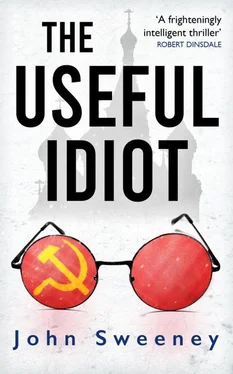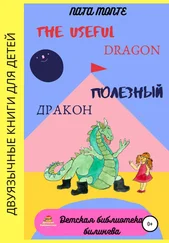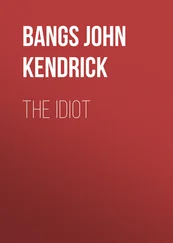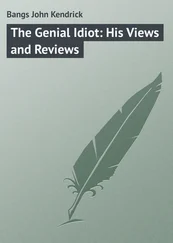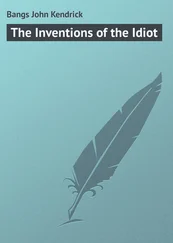John Sweeney - The Useful Idiot
Здесь есть возможность читать онлайн «John Sweeney - The Useful Idiot» весь текст электронной книги совершенно бесплатно (целиком полную версию без сокращений). В некоторых случаях можно слушать аудио, скачать через торрент в формате fb2 и присутствует краткое содержание. Город: London, Год выпуска: 2020, Издательство: Silvertail Books, Жанр: Исторический детектив, Триллер, на английском языке. Описание произведения, (предисловие) а так же отзывы посетителей доступны на портале библиотеки ЛибКат.
- Название:The Useful Idiot
- Автор:
- Издательство:Silvertail Books
- Жанр:
- Год:2020
- Город:London
- ISBN:нет данных
- Рейтинг книги:4 / 5. Голосов: 1
-
Избранное:Добавить в избранное
- Отзывы:
-
Ваша оценка:
- 80
- 1
- 2
- 3
- 4
- 5
The Useful Idiot: краткое содержание, описание и аннотация
Предлагаем к чтению аннотацию, описание, краткое содержание или предисловие (зависит от того, что написал сам автор книги «The Useful Idiot»). Если вы не нашли необходимую информацию о книге — напишите в комментариях, мы постараемся отыскать её.
* * *
The Useful Idiot — читать онлайн бесплатно полную книгу (весь текст) целиком
Ниже представлен текст книги, разбитый по страницам. Система сохранения места последней прочитанной страницы, позволяет с удобством читать онлайн бесплатно книгу «The Useful Idiot», без необходимости каждый раз заново искать на чём Вы остановились. Поставьте закладку, и сможете в любой момент перейти на страницу, на которой закончили чтение.
Интервал:
Закладка:
“I’m sorry, I’m working on my alcohol-fuelled delusions,” said Jones. “Lyushkov didn’t shoot Zakovsky. There is no famine and,” he raised his voice, “you don’t work for the bloody Ch-Ch-Cheka.”
The couple on the far side of the bar turned their heads, then went back to their haggling. If there was one word you didn’t overhear in the Soviet Union, it was “Cheka”.
Evgenia said, “Gareth, please, you must listen to me.”
It was the first time she had ever used his first name.
“I don’t see what the problem is about anyone knowing you work for the Ch-Ch-Ch-Cheka.” His stammer drew even more attention to the taboo word. “The Ch-Ch-Cheka know you work for them. And the Cheka is the only thing that matters in this town.”
She whispered something.
“What? What’s that you say?” His parody of an old and deaf man was all too accurate.
“I had,” she lifted her voice, “I had and have no choice. But you must listen to me. Something terrible…”
His mind, dulled by the buckets of alcohol he’d consumed, suddenly cleared. “Enough! You could have told me you worked for the killers. It would have been nice to know. It’s too late now to come up with some new sob story. I’ve heard enough fairy stories from you.”
She turned and fled.
Putting his wine glass down, he thought hard about what he had witnessed, strove to process it as rationally as he could. What was so extraordinary about the Cheka was its subtle calibration of human pain, how it managed to be so cruel and yet so cunning.
With a sudden insight which made his head spin – as if he had been lifted up by a giant’s hand to the top of a thousand-foot cliff – he realised that what he had endured was a specific edition of a general cruelty which spanned nine time zones, from the old borders of what had been the Austro-Hungarian Empire to the icy wastes overlooking Alaska.
But as far as the rest of the world was concerned, this empire of cruelty did not exist. Fear had smudged out terror. Perhaps even better calibrated than the Cheka’s masking of torture by torture was the castration of the reporters in Moscow. This was, for him, the Cheka’s greatest triumph. From the perspective of the reader in London, New York, Berlin, the Soviet Union was not only an economic miracle but also an admirable social revolution.
Every single reporter in Moscow knew that to be a lie – but the Cheka had managed, through a subtle combination of carrot and stick, to make that lie unsayable. When the Cheka had offered him the carrot, Jones had declined. Money, access to power, sex – no carrot was good enough. He could not be bought. Tonight, he had experienced the stick: the fear, the intimidation of a spell in the basement of the Lubyanka. Well, it had had an effect on him – his hands were still shaking – but it wasn’t absolute. Yet… refashion the stick, whittle it down to the shape of a dagger and point it directly at Evgenia’s heart? They had him.
Jones was still lost in these thoughts when Duranty appeared at the bar, his hair oil gleaming in the Metropol’s chandeliers. Joining Jones for a drink, he prattled on about the snow, the cold and then said, “Pity about Max.”
Jones spilt his drink.
“What?”
“Haven’t you heard?”
Jones was becoming sick of that phrase.
“Suicide, it says here.” He waved a copy of Komsomolskaya Pravda in the air. It was the least theoretical of the Soviet newspapers, running scandalous stories about the party’s enemies, real and imagined. “Jumped out of the window of his flat, poor soul. Upset about Hitler gaining power, naturally, poor fellow. And showing signs of heavy intoxication. Depressed, drunk, he falls from the window. That’s what it says here.”
“What floor did he live on?” Even to his own ears, Jones’ voice sounded slurry.
“The fifth, old boy, it says here.”
“Does it give the address?”
“24 Tverskaya Street. Excuse me for asking, old boy, but have you been on the sauce again?”
Max’s “suicide” must have been the news that Evgenia had been trying to break to him, had he given her the courtesy of listening.
“Word of advice, old boy,” said Duranty. “You seem to be hitting the sauce overmuch these days. Worse, you’re making enemies in all the wrong places. Perhaps it’s time for you to say goodbye to Moscow. Move somewhere more forgiving of your foibles. The revolution is not a very charitable place at the best of times and these are not the best of times. You could do worse than Paris. Or Rome. Berlin, even?”
Jones studied the glass of red wine in his hand, holding it up to the light.
“Berlin, ” repeated Jones, solemnly.
“Sex and blood and gold, old boy,” Duranty said, “that’s what the readers want from you. But it doesn’t matter where, does it? You can do sex and blood and gold anywhere, any old how. It’s only newspapers. Front page news today. Tomorrow’s wrapping paper for fish and chips. What does it matter?”
“Do you think Max killed himself?”
“Obviously, for a Jew, Hitler as Chancellor would have been a terrible blow. He jumped out of the window, dead drunk and mightily unhappy because the big Jew-hater with the little moustache is now ruling the roost in Berlin. Maybe the Cheka gave him a push. Who knows? Who cares how he died? I’m sorry about Max, God rest his soul if there is a God, but I’m worrying about you Jones. Sex and blood and gold, old boy. Reporting’s the game but remember it’s only a game. Don’t take any of it too seriously. That way, you become boring – and there’s nothing worse under the sun than a boring reporter.”
“Berlin, then,” said Jones. He smiled queasily at Duranty, got up, paid the bill and set off into the Moscow night.
Tverskaya wasn’t too far from the Metropol. His head became clearer with every step in the freezing air. Jones knew one thing with an absolute certainty, that Max’s brother Ralf had killed himself by throwing himself out of a window in Berlin and that he, Max, would never have chosen that way to die. He hadn’t shared that thought with Duranty because he wasn’t too keen to share it with the Cheka.
When Jones got to 24 Tverskaya Street, an old woman was leaving by the front door. Galloping up the steps, he held the door open for her, slipped inside and was vaulting up the stairwell before the concierge started shouting at him. There was no lift shaft, at least none that he could see. That gave him some time.
Max’s fifth floor flat was easily identified. A black ribbon had been tied to the door knob and the lock had been shot out, the Cheka’s calling card.
The door opened inwards under a light touch, so Jones stole inside and closed the door softly behind him. The flat was almost completely dark, apart from a few edges of light seeping out underneath the shutters. Once again, he cursed himself for not smoking. All he needed was a match but he didn’t have one, and, yet again, he’d forgotten Crowley’s lighter. His fingers scrabbled around on the wall hunting for a light switch. No luck.
He took a step forwards and tripped over a piece of furniture, crashing to the ground. On the floor, his fingers traced out what was closest to him: an overturned chair, books, shards of broken glass or crockery, something sticky.
He raised his fingers to his lips and tasted blood.
Crawling on his hands and knees, his breathing heavy, he moved three, four feet towards the shutters, and there he crashed into a tower of pots and pans which fell with enough noise to wake up a cemetery. Not caring now, he half-stumbled, half-ran to the shutters and pulled one open. The street lights streaming in lit up a scene of chaos. Bookcases overturned, a sofa upended, a mahogany table splintered and broken, a hatstand smashed into pieces, pots, pans, plates, knives, forks and spoons and even a kettle from Borodin’s tiny kitchen littered the floor.
Читать дальшеИнтервал:
Закладка:
Похожие книги на «The Useful Idiot»
Представляем Вашему вниманию похожие книги на «The Useful Idiot» списком для выбора. Мы отобрали схожую по названию и смыслу литературу в надежде предоставить читателям больше вариантов отыскать новые, интересные, ещё непрочитанные произведения.
Обсуждение, отзывы о книге «The Useful Idiot» и просто собственные мнения читателей. Оставьте ваши комментарии, напишите, что Вы думаете о произведении, его смысле или главных героях. Укажите что конкретно понравилось, а что нет, и почему Вы так считаете.
